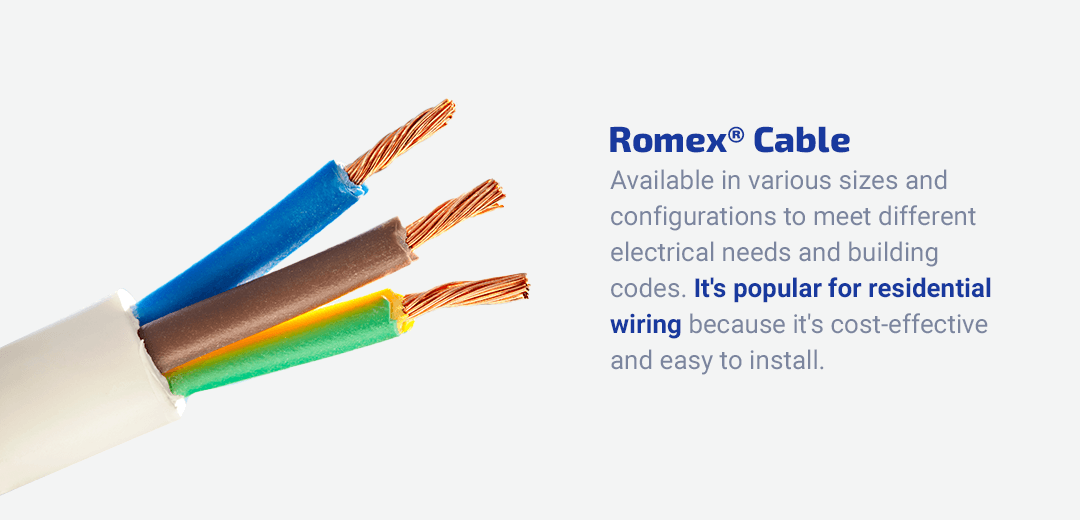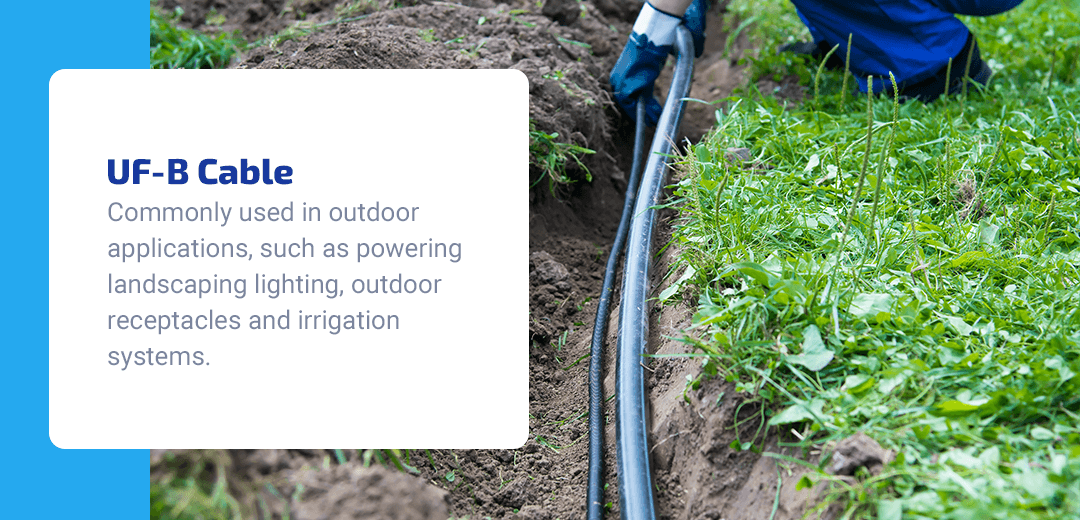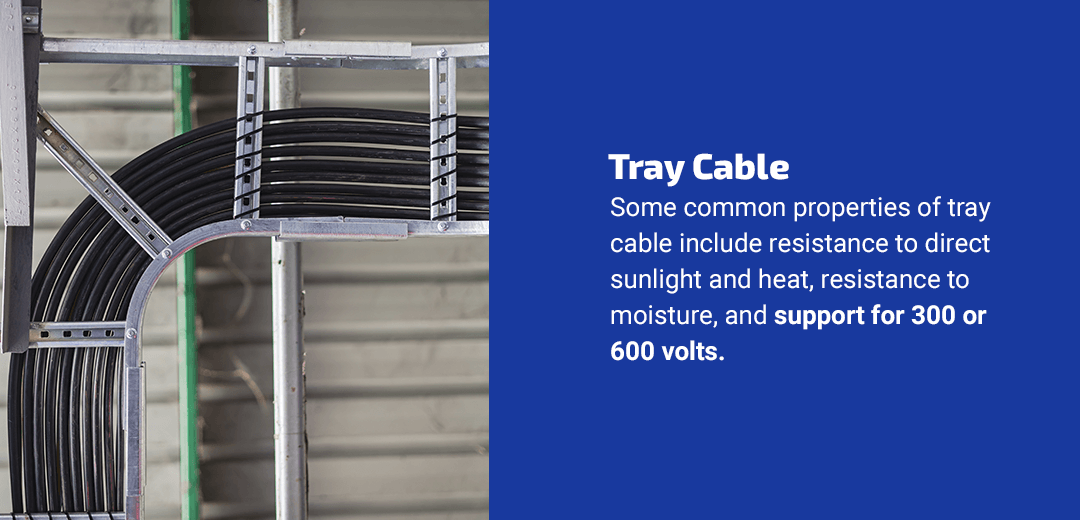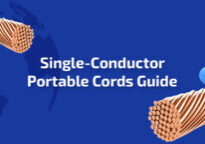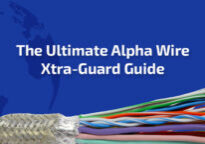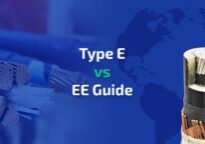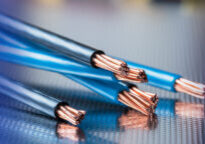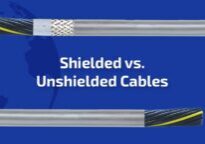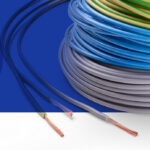
Oct 13, 2020
Types of Electrical Wire

Electrical Wire Types
Common types of wire include THHN wire, Romex® cable, MC cable and UF-B cable. Below you’ll find a basic overview of each.
THHN Wire
Thermoplastic high heat-resistant nylon-coated (THHN) wire consists of a copper conductor coated with a layer of thermoplastic insulation for excellent heat and moisture protection. The nylon coating adds another layer of protection, making THHN wire durable and resistant to wear and tear.
The most popular sizes for THHN wire are 12 and 4/0, though other sizes are available for nonstandard projects.
Electricians choose THHN wire for wiring applications requiring high heat resistance and durability. It’s suitable for dry and damp environments and rated for up to 600 volts.
Romex® Cable
Romex® cable, also known as non-metallic sheathed (NM-B) cable, consists of two or more THHN wires combined with a grounding bare copper wire and wrapped in a non-metallic sheath. The sheath is usually made of a tough, moisture-resistant material like PVC, which protects the conductors from damage and helps prevent electric shock.
Electricians commonly use Romex® cable in applications that won’t be exposed to excessive heat or moisture, such as in interior walls, ceilings and floors. Romex® cable is available in various sizes and configurations to meet different electrical needs and building codes. It’s popular for residential wiring because it’s cost-effective and easy to install.
MC Cable
Metal-clad (MC) cable is a type of wiring electricians use in commercial and industrial locations. It consists of multiple insulated conductors, usually made of copper, wrapped in a protective metal sheath. The metal sheath protects against physical damage, moisture and fire, making MC cable popular for use in areas where safety and durability are a concern.
MC cable is relatively easy to install and suitable for the outdoors and various applications like powering lighting fixtures, HVAC systems and other electrical equipment.
UF-B Cable
Underground feeder and branch-circuit (UF-B) cable is commonly used in outdoor applications, such as powering landscaping lighting, outdoor receptacles and irrigation systems. It consists or two or more insulated conductors surrounded by a tough, moisture-resistant jacket. The jacket is a special type of plastic designed to withstand exposure to sunlight, moisture and other outdoor elements without deteriorating.
Because it deals with more rugged terrains than THHN or Romex®, UFB wire comes in larger sizes, commonly 6/3 and 8/3. Electricians can bury UF-B cable directly in the ground without needing a conduit, making installation easier and more cost-effective. UF-B cable is a reliable and durable option for outdoor electrical applications.
Tray Cable
Tray cable is extremely versatile, often installed in raceways. Tray cable comes in many materials, but some common properties of tray cable include resistance to direct sunlight and heat, resistance to moisture, and support for 300 or 600 volts.
l cable. However, tray cable is round rather than flat and has slightly different applications. A popular type of tray cable is power limited tray cable (PLTC). “Power limited” means support for 300 volts rather than the 600 associated with tray cable in general. PLTC electrical wire is commonly used for electronic applications.
Other Types of Electrical Wire
In addition to the main types of electrical wire, these are some other, less common but useful types of electrical wire.
Indoor NMB cable or Romex® 12/2 cable
NMB stands for non-metallic because it has a PVC jacket instead of a metal-clad jacket. It is a basic indoor electrical wire used to deliver power from an electrical box to lights, outlets and appliances. It cannot be used outdoors because the jacket is not prepared to handle wear and tear.
MC 12/2 Electrical Wire
These MC wires have interlocked armor surrounding the THHN wires. The aluminum armor also acts as a conduit when used for indoor applications. Many times NMB electrical wire is required to be installed within the conduit for indoor applications, but now MC cable can act as the electrical wire and conduit in one.
UFB 12/2 Electrical Wire
This UFB wire has the necessary protection to allow it to be buried in the ground without any additional conduit, raceway or tray. There is a slightly higher cost for UFB because of it’s additional capabilities compared to NMB cable and MC cable.
PLTC 12/2 Electrical Wire
PLTC stands for Power Limited Tray Cable. Power Limited means 300 volts instead of 600 volts. Simply saying “tray cable” will call out 600 volts. PLTC electrical wire is commonly used for electronic applications rather than electrical, but they have very similar attributes when compared to each other.
Purchase Electrical Wire From WesBell Electronics
With a basic understanding of common types of wiring, you can make an informed decision about what to purchase for your application. And if you need additional help, the friendly staff at WesBell Electronics is happy to assist you. We supply bulk wire, multi shielded cable and tubing products for clients needing off-the-shelf or custom orders. Explore our products today and reach out with questions!
Updated May 31, 2023

